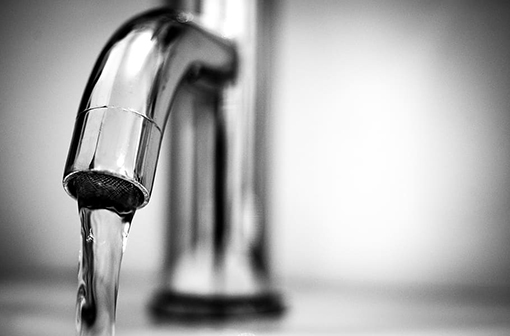
The Clean Water for Georgia Kids Program, a partnership between the Georgia Department of Education and RTI International, a nonprofit research institute, is now ready to help schools test and provide recommendations on how to remove lead from drinking and cooking water where children learn and play across Georgia. The program is free for public schools and funded by a United States Environmental Protection Agency Water Infrastructure Improvement for the Nation (WIIN) grant.
Childhood exposure to lead causes lifelong and irreversible cognitive and behavioral deficits. Bans on lead in paint and gasoline are associated with declines in early childhood lead exposure over the last several decades. Lead is a lingering hazard in the effort to eliminate early childhood exposure to lead, however.
“With the Clean Water for Georgia Kids Program, we are excited to connect with schools across Georgia to provide convenient, science-based support to identify and mitigate lead at the tap,” said Jennifer Hoponick Redmon, a senior environmental health scientist and the RTI program director.
Lead can leach into drinking water from piping and plumbing that carries water from tap to tap. Currently, schools and childcare centers within the public water supply are not required to, and thus are usually not tested for lead at the tap.
The federally grant-funded program in Georgia provides resources to test lead in drinking and cooking water at schools, with low-cost recommendations for taking action to eliminate or reduce lead in water. The program aims to test every drinking and cooking tap at up to 800 schools this year with the help of school staff. After water samples are collected and shipped back to RTI’s Analytical Sciences Laboratory with a prepaid mailing label, they are tested for lead.
“RTI uses advanced instrumentation to measure lead at levels as low as 0.1 part per billion,” said Keith Levine, Ph.D., director of RTI’s Analytical Sciences Laboratory.
RTI will share the results of the testing with each participant, along with recommended actions that the school should take. Often, no-cost and low-cost solutions are effective at reducing exposure to lead, such as practicing clean water habits (e.g., using cold water for drinking or cooking), flushing water after periods of inactivity, installing water filters certified to remove lead, and replacing old faucet fixtures with new stainless steel ones. In some instances, lead service line replacement may be needed.
“As part of our efforts to ensure every child has a safe place to learn, we are pleased to launch this project enabling lead testing in schools across Georgia,” State School Superintendent Richard Woods said. “These results will allow local and state leaders to take action to provide safer learning environments for students.”
HOW DO I ENROLL MY SCHOOL?
Enrollment opens on July 6, 2021 and will continue during the 2021-2022 school year. To enroll, please register for one of the pre-enrollment webinars at this link (or paste https://bit.ly/3hW66kN into your web browser). The webinar will detail 1) how to enroll, 2) how to sample, and 3) how to ship your samples back. At the end of the webinar, you will receive the enrollment code to register your center at www.cleanwaterforUSkids.org/Georgia. To complete the program, your school will need to be open and operating at normal or reduced capacity. Up to 800 Georgia public schools can enroll in the program this year. If interest exceeds capacity, priority will be given to elementary schools, schools that have a higher percentage of students receiving free/reduced lunch, and schools in underserved communities. We expect to open enrollment for Georgia childcare centers in late 2021, along with additional schools that have not yet enrolled.
About the RTI Clean Water for US Kids Program
As a nonprofit, RTI’s approach is science-based, unbiased, and convenient. Our multidisciplinary team focuses on laboratory analysis, environmental health, web programming, community engagement, and risk communication. The Georgia program is building off the efforts of the Clean Water for Carolina Kids pilot study and subsequent program in North Carolina. The program team trains and engages school staff as citizen scientists to collect water samples using a mail-out water quality test kit, and provides support along with a online enrollment, communication, tracking, and reporting portal. A critical part of the program is personalized training and communication, including webinars, how-to videos, a FAQ page, a standardized communication platform, and a results mapper.
In one year (June 2020-June 2021), the Clean Water for Carolina Kids program tested water at more than 3,200 centers or schools and over 18,000 taps. They found lead at or above 15 parts per billion in at least one tap in 9% of locations. Overall, more than 82% of North Carolina’s childcare centers, along with elementary school pre-kindergarten/head start programs, enrolled in the program. In 2020, our lead testing in water program was the recipient of Harvard University’s Roy Award for Environmental Partnership due “the significance in solving an important problem, our innovation, and potential for scalability and transferability to other environmental problems or geographic regions.” We also received a 2020 Environmental Business Journal Award for project merit based on “significant innovation and solutions to addressing drinking water quality concerns.”


Bulloch Public Safety
03/02/2026 Booking Report for Bulloch County

Chattooga Local News
Most Recent Chattooga County Food Service Inspections

Chattooga Opinions
The Joy of the Journey: Godly Friends

Bulloch Public Safety
02/27/2026 Booking Report for Bulloch County

Bulloch Public Safety
02/09/2026 Booking Report for Bulloch County

Bulloch Public Safety
02/16/2026 Booking Report for Bulloch County

Bulloch Public Safety
02/20/2026 Booking Report for Bulloch County

Bulloch Public Safety
02/17/2026 Booking Report for Bulloch County

Bulloch Public Safety
02/02/2026 Booking Report for Bulloch County





